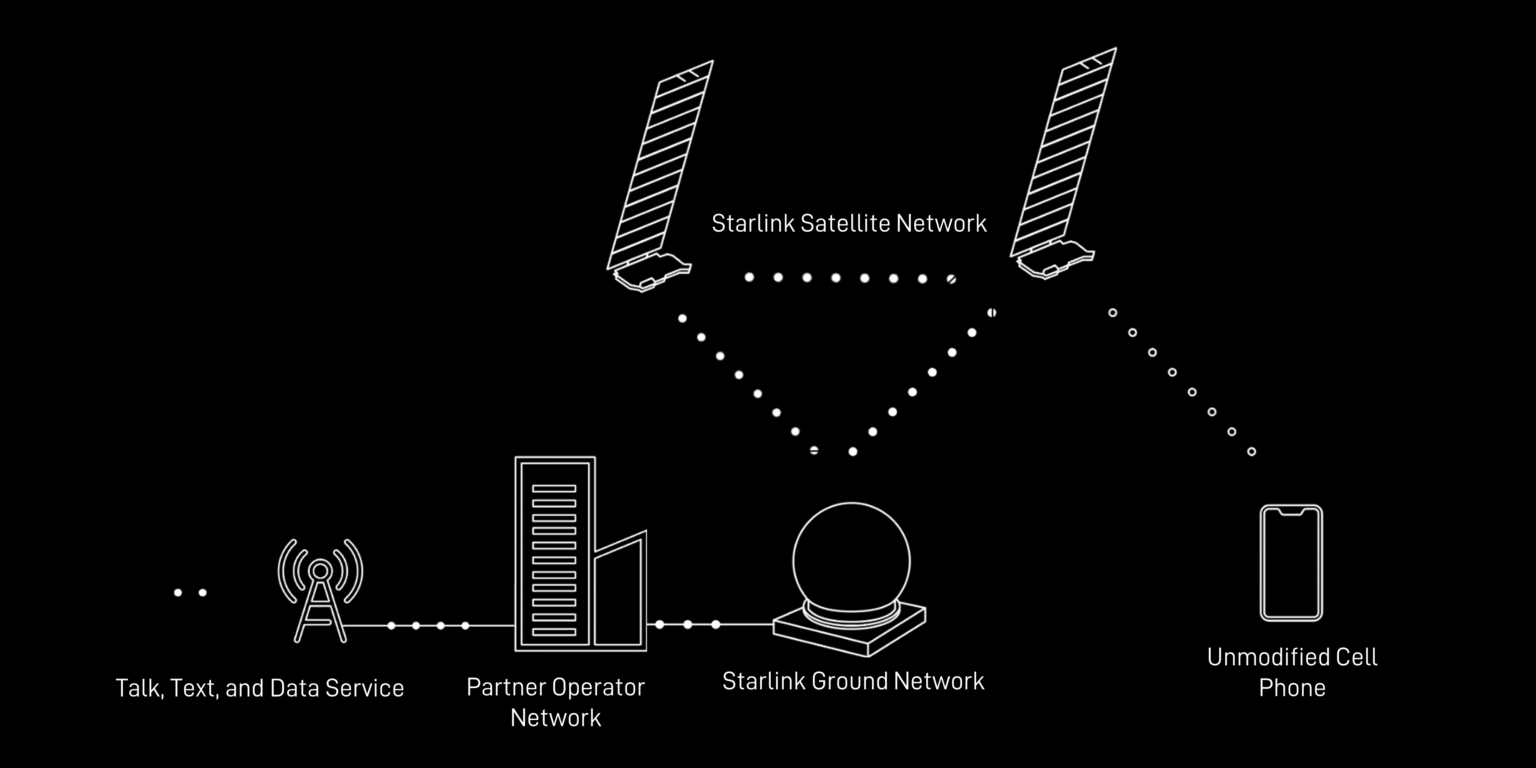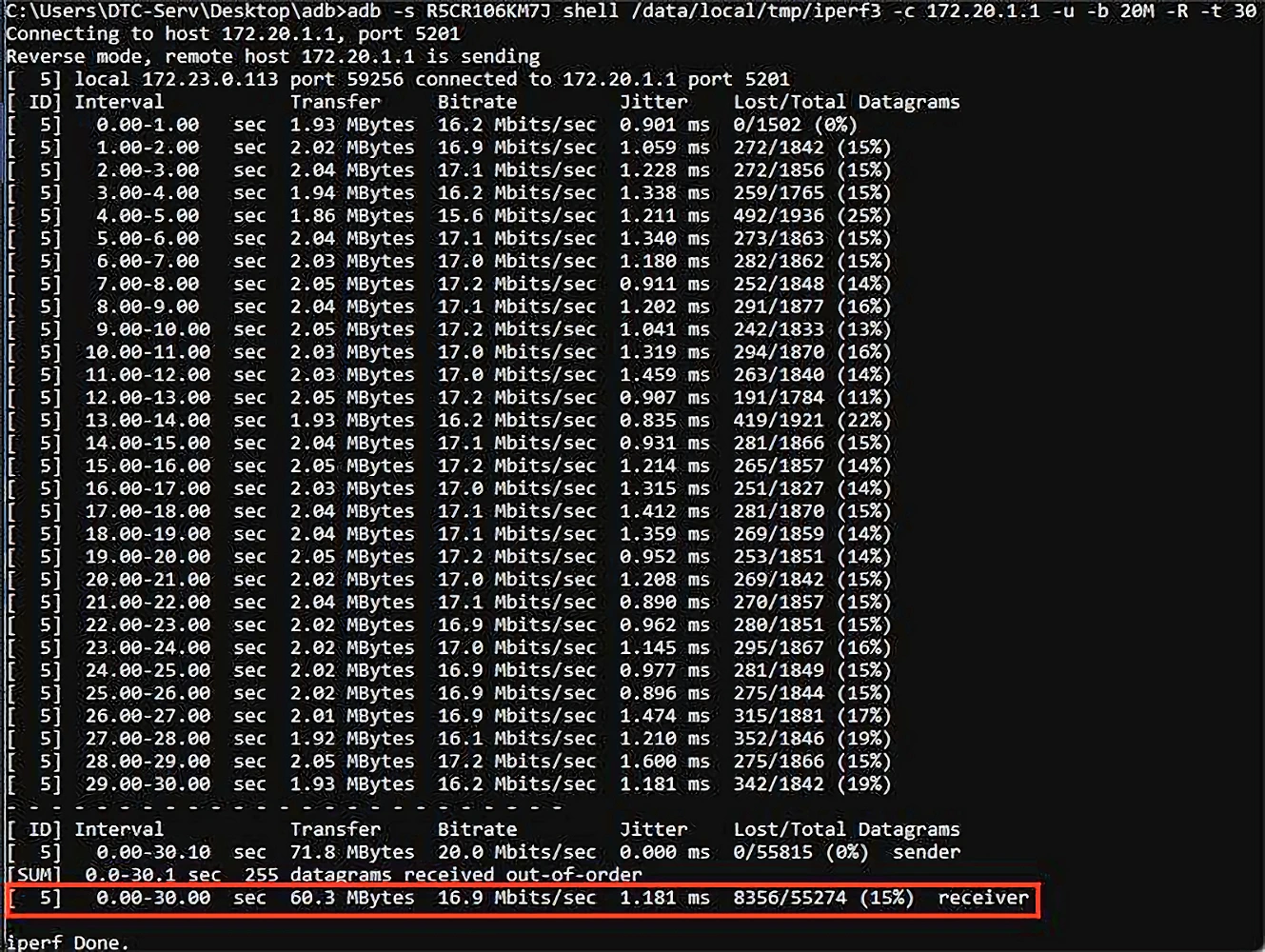Starlink Test Space Direct to Cell Mobile Data Service to 17Mbps

SpaceX boss Elon Musk has conducted another live test of Starlink’s future global Direct to Cell (DtC) mobile roaming service using a regular unmodified Android-based Samsung smartphone, which managed to deliver a 4G based mobile broadband download speed of 15.6Mbps to 17.2Mbps.
Starlink currently has 5,549 LEO satellites in orbit around the Earth (altitudes of c.500-600km) and they’re in the process of adding thousands more by the end of 2027. Customers in the UK typically pay from £75 a month for a 30-day term, plus £449 for hardware (currently discounted to £225 or £150 if refurbished) and £20 for shipping (currently free) on the ‘Standard’ plan, which promises fast internet latency times of 25-50ms, downloads of c. 25-100Mbps and uploads of c. 5-10Mbps.
However, the satellite operator is also in the process of adding 4G (LTE) mobile capability to their mega constellation of satellites, which will enable them to launch a basic kind of global roaming service. Satellite phones are of course nothing new, but they’re usually bespoke and expensive devices, while Starlink’s service is being designed to work with regular handsets as a service add-on to your regular mobile plan.
Advertisement
SpaceX currently aims to launch an initial constellation of hundreds of DtC capable Starlink satellites to enable the launch of their basic text (SMS) service sometime this year (the first 6 are already live in orbit). Support for voice, data (mobile broadband), and Internet of Things (IoT) services are then due to follow in 2025 (it wouldn’t surprise us if this slipped a little).

The operator’s initial testing of this service has, so far, mostly focused upon their basic text (SMS) service. But the latest test by Elon Musk (here) went further and managed to “achieve [a] peak download speed of 17Mb/s from satellite direct to unmodified Samsung Android phone” (the speed actually ranged between 15.6Mbps to 17.2Mbps). The test involved sending a 60.3MB (MegaByte) file over the link, and there was 15% packet loss.
Take note that packet loss is an issue that occurs when some of the data packets being transmitted between two or more points (e.g. servers) on the internet or a network effectively go missing or are incorrect. The connection autocorrects for this, but doing so can result in an additional delay (increased latency times) or other problems.
Advertisement
Musk later clarified that “this is the current peak speed per beam and the beams are large, so this system is only effective where there is no existing cellular service.” The initial DtC capable satellites being used here are currently also orbiting at a lower altitude (below 400km), and so the speeds may slow a bit from c.17Mbps once they complete the transition to their operational level of around 550km.
Interestingly Musk previously stated (here) that the first DtC capable Starlinks could only support data speeds of “~7Mb per beam and the beams are very big, so while this is a great solution for locations with no cellular connectivity, it is not meaningfully competitive with existing terrestrial cellular networks.” But it’s not quite that simple, given both the current altitude and the designed performance range stated below.
Related documents released last year revealed that the DtC system can provide “theoretical peak speeds of up to either” 3Mbps or 7.2Mbps on upload (Earth-to-Space) over 1.4MHz or 5MHz bandwidth channels per beam, respectively, and up to either 4.4Mbps or 18.3Mbps on the downlink (Space-to-Earth) over the same bandwidth channels per beam using LTE (4G) technology.
As above, DtC is primarily designed for basic communication needs in areas of unreliable, uncertain or non-existent mobile signal, thus the ability to achieve fast mobile broadband speeds isn’t as important as it would be on a normal mobile network. In addition, it’s worth noting that Musk is currently testing an uncongested service, thus the real-world performance may differ.
Advertisement
Speaking of adoption, we still know next to nothing about how much this service will cost, which is key since it’s likely to be competing, at least in part, with some existing mobile roaming add-ons or travel plans (not-spot coverage alone is a key difference with DtC, yet it’s also more of a niche). But so far no mobile operators in the UK have announced their support for the service.
Copy of the DtC File Transfer Test Record

Mark is a professional technology writer, IT consultant and computer engineer from Dorset (England), he also founded ISPreview in 1999 and enjoys analysing the latest telecoms and broadband developments. Find me on X (Twitter), Mastodon, Facebook, BlueSky, Threads.net and Linkedin.
« Full Fibre UK Network Operator Telcom Appoints New CEO






















































I recall hearing about an AT&T partnership launching a product in Barcelona last month. Less cover as few satellites but offering 4g to mobile.
Interested to hear a comparison of technologies as this has major political implications wrt control, monitoring and democratising access to information.
I hope it’s as good as Starlink is. I get 250-500mbps all day long but no one else has it in this area I don’t think. Well worth the £75 a month and I can often see/tell when I am going from a Gen 1 to a Gen 2 sat as the speed shoot up to the high 400. Based on the fact a Gen 1 sat has a 5 year lifespan and then it burns up I can really see Starlink doing 1Gbps down by end of next year with the first sats to die in about 1.5 years tie.
speaking of burning up – have SpaceX figured out how to stop Starlink burning cash yet? Especially with the thousands of satellites they have launched / want to launch.
How much power is going out of the phone to reach a satellite?
All devices have a maximum power on transmission, when searching for a signal.
It’s wouldn’t be more than when a phone is searching for a signal for our home mobile networks. Like if there’s no signal or full signal.
Limited to a couple of watts. This is an unmodified handset.
“Take note that packet loss is an issue that occurs when some of the data packets being transmitted between two or more points (e.g. servers) on the internet or a network effectively go missing or are incorrect. The connection autocorrects for this,”
Does TCP/IP not do this?
Didn’t say it didn’t, was just explaining what packet loss is and that connections correct for it.
Mobile links uses error correction to minimise the loss presented to IP and in turn TCP.
Without it speeds would be horrific on terrestrial cell networks let alone this.
wasn’t meant to be offensive/to offend. I was just wondering if it was reliant upon that for error correction or if starlink has it’s own form of correcting it on the physical layer or otherwise. apologies if it sounded critical
It’s not TCP/IP until you get to layer3. The protocols at layer2 may also have mechanisms for dealing with transmission errors.
Exactly as 125us says – within LTE there’s re-transmit protocols before the TCP/IP level. It’s both really quite good and totally inefficient.
From my perspective this is probably the best thing that’s happened to mobile phones since the first roaming agreements went live about 30 years ago. SRN appears to a total failure in England, this is currently the only light at the end of the tunnel.
That ping is respectful